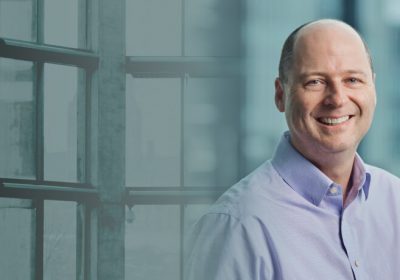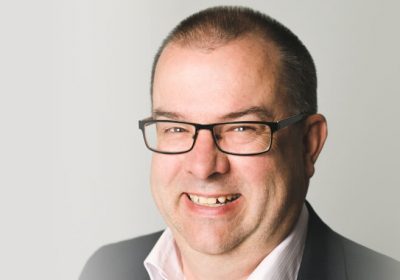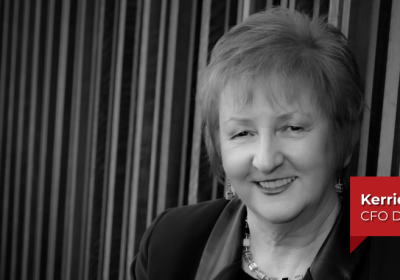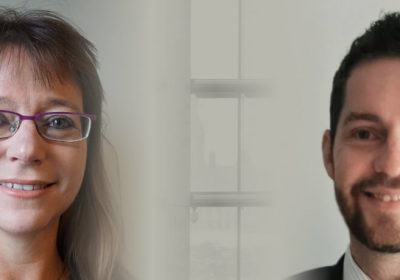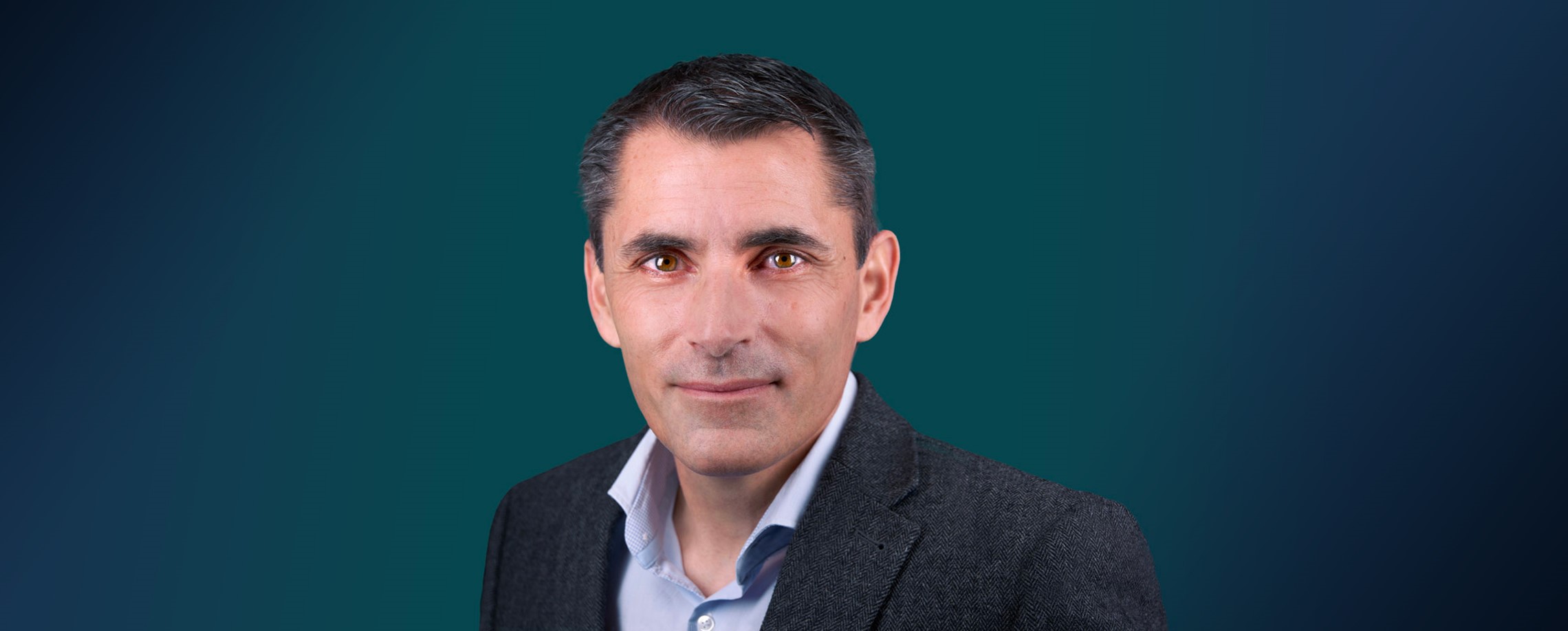
- Author: Richard McBride
- Posted: January 15, 2024
Soaring SaaS Startup > Nick Rose, CFO, Enable
Since joining start-up Enable in 2019, CFO Nick Rose has co-piloted the rebate management company as it’s grown on average faster than the top quartile of its SaaS peers, and recently broke through the $1 billion valuation mark, catapulting it to hyper-growth and unicorn status.
CFO Magazine A/NZ Editor, Richard McBride, sat down with Nick for a wide-ranging conversation covering everything from how he strikes the right balance on cash burn to his ‘pinch me’ moments since relocating from the UK to North America to be part of the Enable team.
RM – Nick, thank you for joining us today. The past year has been busy for Enable. What have been some of the biggest milestones?
NR – It was a spectacular year. We set out with the target of doubling the size of the business in terms of our top line sales, and we’re on track to achieve that. Our team expanded from around 460 people to 630. We’ve hit all our quarterly targets again for the fourth year running.
We completed our first acquisition (of the Rebate Deal Management platform of Australian-based Profectus Group) just over a year ago and that’s been super successful – we’ve kept every single person and customer that came to us with the acquisition, and it’s given us a real foothold in Australia and New Zealand.
And of course, the big headline was our Series D raising, which took us to a valuation of over $1.1 billion. We have great big plans that we’re putting in place now to spend that wisely to continue the growth curve and invest in products and in the team to really deliver on the goals.
RM – To build a hyper-growth business involves ‘cash burn’, which tends to go against the risk averse instinct of many traditional CFOs. How do you strike the right balance on spending?
NR – It becomes a question of how fast can you go versus how fast can you cope with going. If you look at our numbers over the last 24 months, we’ve grown faster than the top quartile of SaaS companies in our space on average, against the population of 600 or 700. But in growing faster, we’ve also spent faster.
What gives me confidence is two things:
The first is accurate planning. We have quarterly, and annual targets in terms of top line growth, cash burn, headcount and the like. We plan in quite a lot of detail 6 to 9 months out, with metrics; we have an annual plan; and we have a strategic plan that goes three years out – and so far, we’ve been really accurate.
Runway is the other – it’s finding a balance, quarterly, for the amount of cash we’re going to burn that’s acceptable in terms of what runway we’ve still got in the bank.
RM – CFOs are often held up by boards as the ‘brutal truth tellers’ of what’s happening in a business, while CEOs are often good news harbingers. What are the dynamics like between yourself and CEO, Andrew Butt, at Enable?
NR – Andrew is an eternal optimist and will always have the glass three quarters full, but we do have some really good, robust debates among the exec team around where we are and how best to face into problems. When it comes to messaging – to the board, to our investors, to the general public – I’ve never known an exec team so aligned.
The numbers are the numbers. You can’t change what they tell you, and we all own our figures. It’s a difficult one to hear when a CFO says, ‘We should tell the brutal truth’, because so should you all. There should be no hiding place for what’s going on. We can have some good debates over what kind of colour we paint words around it, but what we agree as a collective team is how it’s presented, and everyone is expected to commit to that.
RM – What do you see as the attributes of a contemporary CFO and how has it changed since you started your career back in 1996?
NR – The traditional kind of CFO role – one of simply keeping the score – is just completely gone.
A big first change was the realisation that you’ve got skill sets in your team that can handle data and find actionable insights within it, and deliver that to the company’s leaders as a business partner, rather than a scorekeeper. It changed from keeping score to actually coaching the team.
Now the CFO has to be a master of many more trades than just finance. When you look at my remit, I also look after legal, property, insurance, our equity plan, I set up the first people systems until we hired our first HR person – essentially a business partner with wide experience, keeping us compliant and legal, strategic as well as financially on the money.
So now, instead of being coach on the side, I see it as being on the field and helping the players make decisions rather than just giving the report, as well as talking to the crowd and keeping them happy.
RM – You recently made the move to Toronto, Canada to take Enable to the next level, after spending around 16 years in your previous role with builders’ merchant Travis Perkins, based in the UK’s Northampton. What are the biggest changes you’ve observed as CFO in North America compared to other markets?
NR – North America is our biggest market by far and Toronto is our North American hub. We are going to keep investing here and one of our stepping stone goals on the way to being a substantial company is to achieve a public listing, so I’ve needed to learn the North American way of accounting and how operations are set up really well to be able to deliver that.
There are some quite significant differences. The US is particularly focused only quarterly performance, whereas the UK tends to have a slower drumbeat because it works annually in terms of reporting. But the biggest difference is, in the UK, the words ‘GAAP’, or Generally Accepted Accounting Principles, are just that: they’re principles and you have quite a wide interpretation capability. In the US, they should be called ‘GAAR’ for Generally Accepted Accounting Rules. You have to obey them to within an inch of your life!
RM – So is a public listing on the cards rather than other forms of exit?
NR – A public listing is by far the favoured choice, because we are focused on continuing to grow the company into a substantial winning platform that really delivers value to our customers. An IPO, rather than continuing to raise privately, opens up different sources of funds, cheaper finance and a different methodology around financing.
RM – I look forward seeing you ring the bell! What are Enable’s big goals for 2024?
NR – To double the business again. So, we’ll have done a triple-triple-double-double by the end of the year – that’s the aim.
We want to expand fast and grow the team, but we want to grow efficiently and with care. Our pathway to profitability becomes clearer as we grow and so if we can hold the cash burn static, then it becomes a smaller percentage of our total.
When we look at our total addressable market, it’s so vast and there’s so few other players around. I’m sure competition will come, but the space is there for us to continue expanding.
RM – What would you say are some of the biggest opportunities and risks for the CFO community in 2024?
NR – Opportunities wise, everyone’s talking about AI. It’s great in some respects, but still fraught with problems. Even as someone in a tech business, I don’t think it’s going to change the world in the next two, three, four years – It’s a longer-term game.
Our biggest threat is around financing. There was a big shock in the SaaS world about 18 to 24 months ago where funding closed down. That’s a good reason to keep a pretty decent runway in your pocket.
The other challenge is access to great talent. We’ve got to grow our team by 50% this year and finding the right people is going to be tough.
The thing that I always look for is people who’ve been promoted in role or in a company rather than moved around a lot because that tends to show that someone’s believed in them. On technical skill sets, I obviously ask lots of questions, but I am really looking for someone who has energy – that’s probably the most critical resource you can have at Enable. You have to be able to really deliver and keep going.
RM – Have there been any ‘pinch me’ career defining moments since joining Enable?
NR – Landing the Series A was a big watershed. It was February 19, 2020 when we closed it and we could all see Covid looming. Two weeks later, everyone was battening down the hatches, so we were that close to success or failure, and fortunately we fell on the success side.
Since then, it’s been the belief from highly experienced VCs that we’ve got what it takes to become a really substantial business. Lightspeed, who led our Series D, have done a comparator of us versus other companies at similar stages, and they’re comparing us to the likes of Workday and Nvidia, worth tens of billions. You do have to pinch yourself sometimes. It’s a great experience.
RM – Thank you Nick for your time and shared insights today, wishing you and the team at Enable all the very best for 2024 and beyond!



